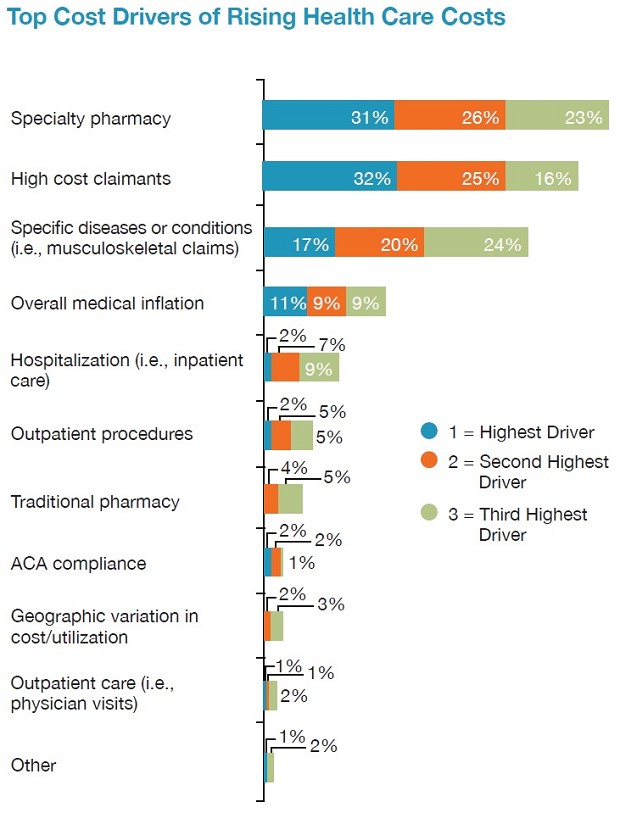The cost of getting your health insurance through work will go up an average of 5 percent next year, according to a new survey of large employers by the National Business Group on Health.
The cost for employers will go up 6 percent. This is the third consecutive year that employers’ health costs have risen by 6 percent. While that’s still more six times the current rate of inflation, it’s likely a smaller increase than will be experienced by consumers who purchase insurance through the public exchanges.
While those plans vary widely by state, the average plan is expected to cost 10 percent more in 2017, according to Kaiser. Last year, the price of the average silver level plan on public exchanges increased 12 percent.
Related: Health Care Costs for Average American Family Now Exceed $25,000 a Year
For employers, the biggest driver of the cost increases is the price of specialty drugs. Other factors included high-cost claims and long-term conditions, according to the NGBH survey.

Source: National Business Group on Health
In addition to price increases, the National Business Group on Health highlighted several other changes that insurers are making to their health plans that you may see in open enrollment this fall.
1. Telehealth: The percentage of employers offering telehealth services is expected to increase from 70 percent this year to 90 percent in 2017 in states where it is allowed. The survey found that almost all employers expect to offer telehealth by 2020.
2. High-deductible plans: Also known as consumer-driven health plans, these low premium policies will be offered by 84 percent of employers next year, up from 83 percent this year. They will be the only option at more than a third of employers.
3. Nurse coaching: Eight in 10 employers will offer nurse coaching to employees for care and condition management, and 72 percent will offer nurse coaching for lifestyle management.
4. Specialized provider agreements: Employers will increase their arrangements with so-called “centers of excellence,” preferred health care providers that specialize in specific treatments. The survey found that 85 percent of employers will use centers of excellence, up from 79 percent last year, with the largest growth in centers that offer bariatric surgery, transplants and fertility treatments.





